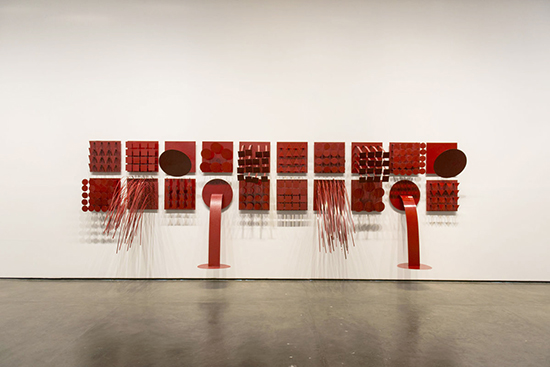Short-form Criticism Workshop:
The conditions for judgment Instructor: Sean Tatol Date & Time: July 7th, 14th, 21, 28 14:00-16:30 ET

DESCRIPTION: This Workshop engages participants in the discipline of criticism as a contemporary practice. The qualitative judgment of art has always been a fraught process. Following the decline of art historical canon, various critical and/or theoretical discourses, and the debilitating rise of social media, the prospect of criticism seems nearly impossible. But this sense of impossibility is a mere cultural norm, and the prevalence of ineffectual art writing that diverges from criticism only proves criticism’s necessity.
This Workshop will examine the history of the field of criticism and its enduring usefulness while grappling with the act of writing criticism in the present. We will consider the qualities that characterize a new form of criticism that is informative, articulate, entertaining, and, more importantly, brief yet powerful. The Workshop will center on the importance of short-form writing in a contemporary online context that has become the new locus of discourse, using the example of the instructor’s own writing on the Manhattan Art Review. In this process, the act of judgment will emerge as an integral and communicable operation in the ontology of art, and participants will learn through practice the means by which authentic judgment occurs.
-Overview of the four sessions of the seminar:
Session 1:
-Introducing short form criticism: The contemporary method of aesthetic communication, where the critic conveys their judgment to readers who might be suffering from attention deficit under current media regimes. The session lays the basic rules of short-form aesthetic education, where the reader quickly learns to understand and discriminate between artworks by the critic’s example in the minimum number of words required.
Session 2:
-The contemporary critic: How is it possible to ground subjective judgments without recourse to objectivity? What is the relationship between social phenomena, including art, their criticism, and the temporal context in which they appear? What can we learn from the history of criticism, and how does our present context differ?
-Discussion of the form and content of the final project.
Session 3:
-Perspective, taste, and accelerated articulation: A discussion of criticism considered in short-form writing, what criticism says about art, culture, politics, critics, and social context in the age of technological acceleration. What changes in criticism when it prioritizes the articulation of subjective judgments over presenting ostensibly factual information?
-Review of short-form critical pieces.
Session 4:
-Presentation and review of final pieces.
IMAGE: Lygia Pape, Amazonino Vermelho,1989-2003.
To see The New Centre Refund Policy CLICK HERE.
To see The New Centre Refund Policy CLICK HERE.